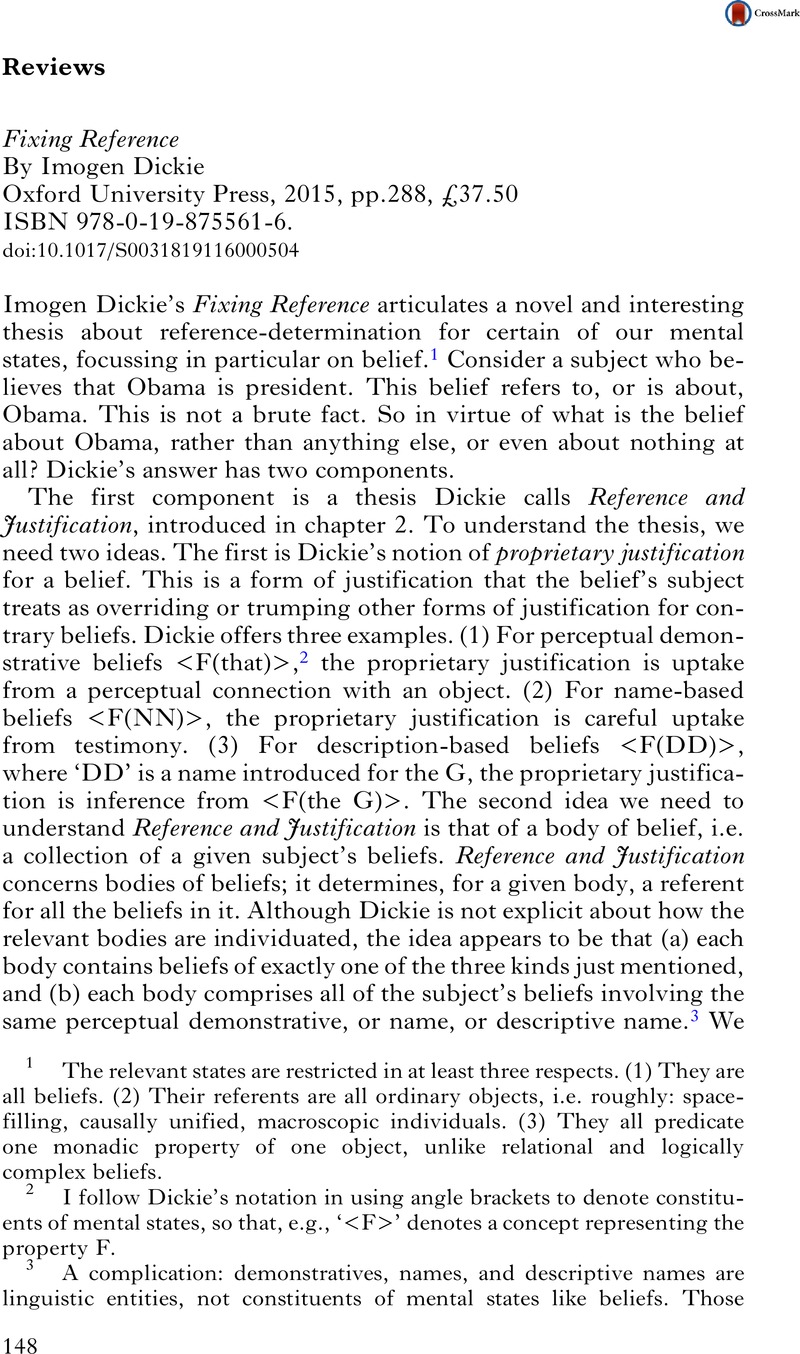No CrossRef data available.
Published online by Cambridge University Press: 25 October 2016

1 The relevant states are restricted in at least three respects. (1) They are all beliefs. (2) Their referents are all ordinary objects, i.e. roughly: space-filling, causally unified, macroscopic individuals. (3) They all predicate one monadic property of one object, unlike relational and logically complex beliefs.
2 I follow Dickie's notation in using angle brackets to denote constituents of mental states, so that, e.g., ‘<F>’ denotes a concept representing the property F.
3 A complication: demonstratives, names, and descriptive names are linguistic entities, not constituents of mental states like beliefs. Those states are, however, correctly reportable using demonstratives, names, and descriptive names. Dickie hypothesises that distinct kinds of belief correspond to these distinct kinds of linguistic expression.
4 Several refinements and precisifications of this idea are discussed in chapter 2.
5 This is an adaptation of Dickie's official formulation on page 94.
6 This is an adaptation of Dickie's official formulation on page 102.
7 (D*) is an adaptation of Dickie's principle 4 on page 129.